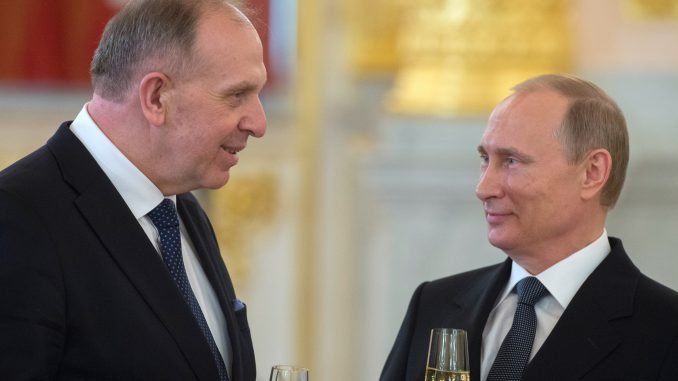
“I believe that media report was made for propaganda purposes, made at the initiative of a certain interested group of people,” the diplomat said in an interview with BNS.
Motuzas drew attention to the fact that the embassy usually receives information about Russia’s internal policy decisions related to Lithuania, and it did not in this case. It shows that possibilities for really carrying out such a probe are vague, he said.
“We all realize it’s impossible in terms of the legal and other aspects,” the ambassador said. “Our president and our foreign minister expressed their opinions in very due time, and I think we need to respond.”
Russia’s Prosecutor General’s Office initially confirmed they were looking into a request by Russian MPs to review the 1991 decision to recognize the independence of the Baltic states, but later announced that it had “no legal prospects”.
Russian President Vladimir Putin’s spokesman Dmitry Peskov was also surprised at the news about the controversial request.
Motuzas told BNS that Lithuania was trying to develop cultural relations with Russia as his embassy organizes two cultural events every month.
“Many Russian people attend our events. Russians interested in culture, especially in professional music, come, and the other group of people consists of many friends of Lithuania,” the diplomat said.
The Lithuanian ambassador said, nevertheless, that a political dialogue with Russia remains tense due to Crimea’s annexation and its support of separatists in eastern Ukraine. But Lithuania and Russia continue exchanging information in the areas of law enforcement and customs.
Commenting on the fact that Lithuania was the only country not to have sent a single diplomatic representative to the Victory Day celebrations in Moscow on May 9, Motuzas said he received more reactions from partners in Europe and not Russian officials.
“Honestly, there were more questions from EU ambassadors than from colleagues from the Kremlin. They expressed their surprise that we have an embassy here in Moscow and that we should send somebody. These were, of course, friendly contemplations, but there were more expressions of surprise from the ambassadors of those states that have friendly relations with Russia,” Motuzas said.
“I did not receive a single official inquiry from Russia’s Foreign Ministry. It was only noted during the presentation of my credential to Vladimir Putin in late April that we won’t attend the parade. But it was done rather jokingly,” the Lithuanian ambassador added.
Speaking about the fact that Russia extended the food embargo for EU and several other countries, Motuzas said that quite a lot of time would be needed to restore normal economic relations with Russia but that would depend on Russia itself.
“Of course, the loss of traditional markets in Russia is a certain problem. It will be difficult to return since the Russian government has created favorable conditions for local producers, and exporters from Asia and South America are trying to fill in the empty niches,” Motuzas said.
Russia is taking active interest in energy projects in Lithuania and the EU, the ambassador noted. In his words, Russian officials remind during private conversations that Lithuania has the opportunity to use Gazprom gas and can also negotiate “certain” prices and conditions with Russia.
Motuzas assumed his ambassadorial position in Russia on May 28.

Be the first to comment